The parent-child bond, often seen as a source of love and support, can sometimes become a source of pain and confusion. This often results in children searching or asking, ‘what is toxic parenting?’ and “Are my parents toxic?”
Recognizing toxic behavior in your parents, and the possibility that you might unknowingly mimic it, can be more challenging than identifying toxicity in a friend or colleague.
The unique bond you share with your parents often leads you to grant them the benefit of the doubt. Turning a blind eye to the issues at hand.
Through this article, we will explore ‘what is toxic parenting’ as this will help you to understand the behaviour of your parents. Additionally, we will also learn what are the disturbing signs of toxic parents.
We will provide a roadmap on what to do when your parents are toxic. These are not just empty words; they are actionable steps to help you regain control, heal, and thrive.
Whether you’re seeking answers or simply expanding your knowledge, understanding what are signs of toxic parents is your first step towards reclaiming control of your life.
What Is Toxic Parenting?
A ‘toxic’ parent, as described by researchers is a parent who exhibits a range of damaging and harmful behaviors towards their child. These behaviors create an environment within the family that is emotionally and psychologically detrimental to the child’s well-being.
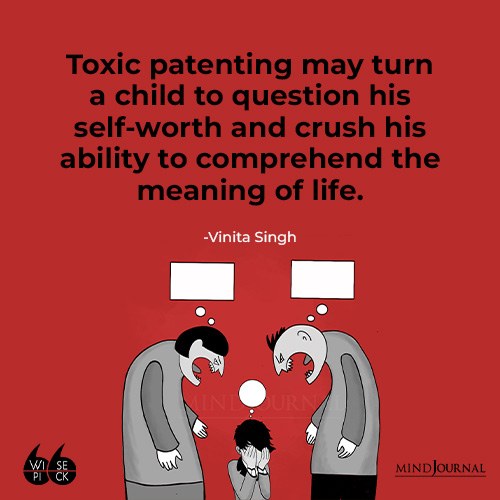
A ‘toxic’ parent, as described by researchers is a parent who exhibits a range of damaging and harmful behaviors towards their child. These behaviors create an environment within the family that is emotionally and psychologically detrimental to the child’s well-being.
Read More: How Parents Cause Mental Health Problems In Children
One of the hallmarks of toxic parenting is emotional abuse. Picture a parent who constantly criticizes, humiliates, and belittles their child. Instead of encouragement, the child receives a never-ending stream of negativity.
This eventually breaks down the independent nature of the child making them more subservient.
But toxic parenting isn’t just about what’s missing; it’s also about what’s present in abundance. These parents dictate every aspect of their child’s life, rarely considering their child’s needs or desires.
The plot of the movie, “I, Tonya” perfectly shows what is toxic parenting and its profound impact on the life of the protagonist, Tonya Harding.
From a young age, Tonya experiences both physical and emotional abuse from her mother, LaVona Golden. Her mother forces her into figure skating and prioritizes her skating career over her well-being, pulling her out of school.
LaVona’s constant criticism and belittlement contribute to Tonya’s low self-esteem and self-doubt, which persist into adulthood.
“I, Tonya” explores the repercussions of toxic parenting on Tonya’s life, both personally and professionally. Her tumultuous relationship with her mother seeps into her romantic life, leading to a turbulent marriage with Jeff Gillooly.
The film illustrates how the cycle of abuse can continue when individuals raised in toxic environments. The film is an example of what is a toxic parent and how it affects a person even in adulthood.
What Are Signs Of Toxic Parents:
1. Emotional Manipulation
Emotional manipulation is a hallmark of what is toxic parenting, it will answer what is a toxic parent. Situations where parents resort to subtle and sometimes overt tactics to exert control over their children’s emotions and behaviors.
This manipulation often involves the strategic use of guilt, shame, or fear, designed to make the child conform to the parent’s wishes or stifle their own feelings and needs.
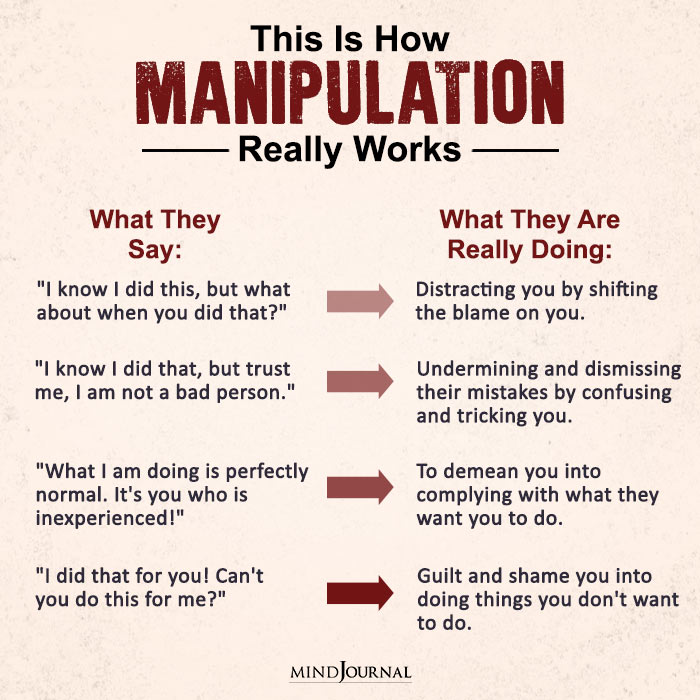
Toxic parents skillfully employ emotional leverage, exploiting the child’s vulnerabilities to maintain dominance and power in the relationship. They may play on the child’s innate desire to please their parent or seek approval, making the child feel responsible for the parent’s happiness or well-being.
As a result, the child may feel trapped in a cycle of emotional obligation, continuously striving to meet the parent’s expectations to avoid feelings of guilt or disappointment.
2. Lack of Empathy
Empathy is the capacity to recognize and connect with the emotions of others, demonstrating compassion and support. In the context of toxic parenting, empathy plays a vital role in fostering a strong emotional bond between the parent and the child.
A non-toxic parent will empathize with their child’s joys, sorrows, and struggles, creating a safe and nurturing environment for emotional expression. Understanding normal behaviours will allow you grasp what are signs of toxic parents.
However, a toxic parent lacks this essential emotional attunement. They may disregard or downplay the significance of their child’s emotions, making the child feel invalidated and unseen.
When the child reaches out for comfort or understanding, the toxic parent might respond with indifference, minimizing their feelings, or outright dismissing their concerns.
3. Excessive Criticism
A defining characteristic that will explain what is toxic parenting is the tendency to engage in excessive criticism, where parents consistently find fault and belittle their children. This pattern of behavior creates an environment filled with negativity, eroding the child’s self-esteem and emotional well-being.
Toxic parents are quick to criticize and rarely offer praise or encouragement. They may focus on the child’s perceived shortcomings, flaws, or mistakes, using criticism as a means of control or asserting dominance.
Instead of providing constructive feedback, toxic parents often resort to harsh and demeaning remarks, leaving the child feeling inadequate and unvalued.
Constant exposure to criticism can have profound effects on a child’s self-esteem. The child may have feelings of worthlessness and self-doubt.
Over time, they may develop a negative self-image, believing that they are inherently flawed or incapable of meeting expectations.
4. Emotional Neglect
One of the distressing signs of toxic parenting is emotional neglect, where parents fail to meet their child’s emotional needs, resulting in a sense of emotional disconnection and lack of support.
Toxic parents may prioritize their own needs or simply be unaware of their child’s emotional requirements. As a result, they fail to provide the nurturing, empathy, and validation that children need for healthy emotional development.
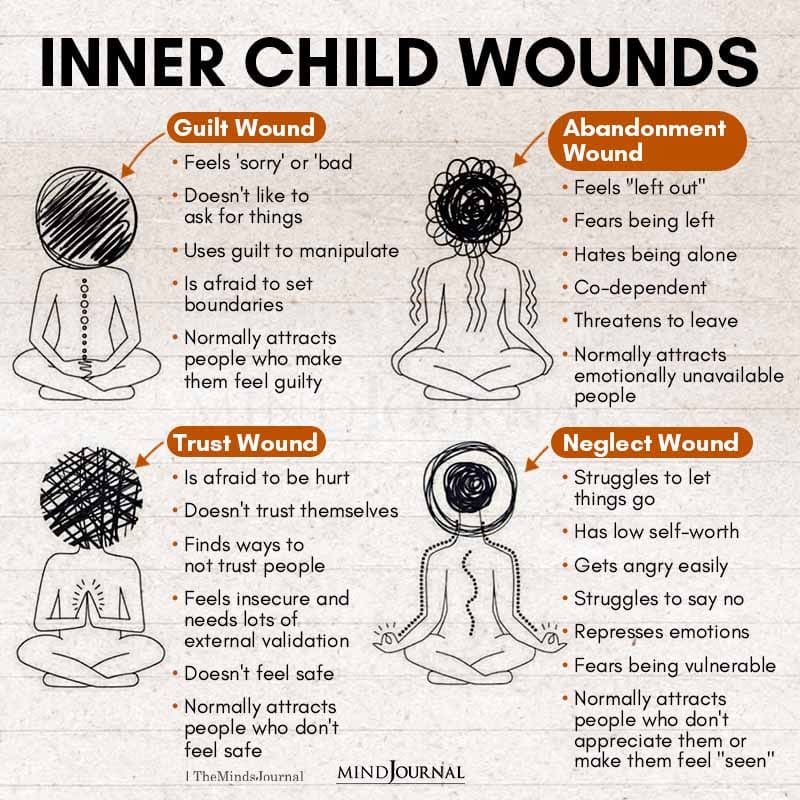
This emotional neglect can manifest in various ways, such as being emotionally unavailable, unresponsive, or dismissive of the child’s feelings and emotions.
Emotional neglect leaves the child feeling alone and unsupported in navigating their emotional experiences. They may struggle to express and regulate their emotions or develop a healthy understanding of their own feelings.
The child may feel invisible, as their emotional needs go unnoticed or unacknowledged by the parent.
5. Gaslighting
Gaslighting is a manipulative tactic commonly employed by toxic parents to exert control over their children. It involves distorting the child’s reality and undermining their sense of trust in their perceptions and memories.
In the context of what is a toxic parent, gaslighting occurs when a parent invalidates their child’s feelings, experiences, or memories, making the child question their own reality.
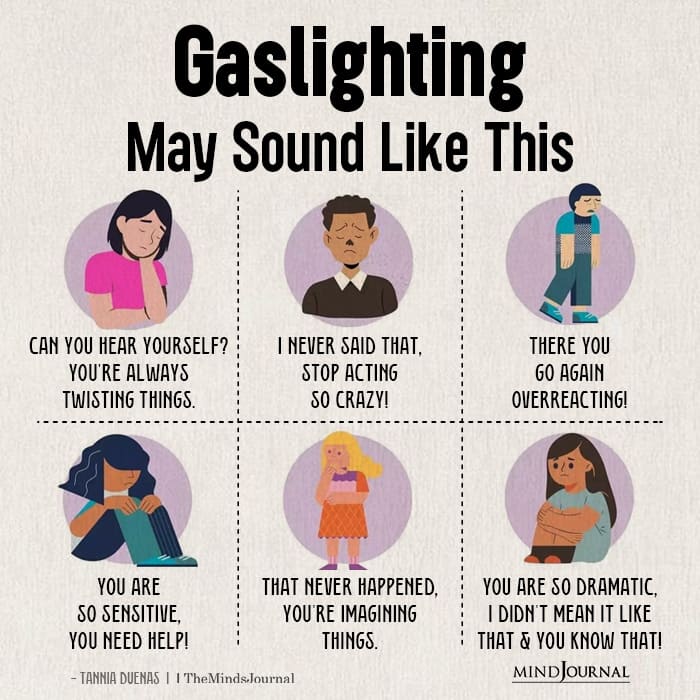
This psychological manipulation is insidious and can have lasting effects on the child’s self-confidence and emotional well-being. This psychological impact is a hall of what is toxic parenting.
Read More: 5 Signs You Are The Child Of A Toxic Parent
Gaslighting may take various forms, such as outright denial of events or experiences that the child vividly remembers, minimizing the child’s emotions or dismissing their concerns, or even directly contradicting the child’s perception of events to create confusion and self-doubt.
6. Verbal and Physical Abuse
In the most severe instances of toxic parenting, verbal or physical abuse becomes a distressing reality for the child, inflicting profound harm on their overall well-being.
This form of toxic behavior goes beyond emotional manipulation and neglect, as it involves direct acts of aggression towards the child.
Both verbal and physical abuse contributes to a toxic and unsafe home environment for the child. These forms of abuse can hinder the child’s emotional development, causing feelings of helplessness, fear, and a diminished sense of self.
The child may struggle to trust others, develop healthy relationships, or express their emotions, fearing potential retaliation or rejection.
7. Absence of remorse or apology
The absence of remorse or apology from the parent further reinforces the child’s perception that their emotions and needs are inconsequential.
It can lead to feelings of powerlessness, as the child’s attempts to communicate their hurt or seek resolution are met with indifference or denial.
Moreover, the lack of apology or remorse perpetuates a toxic dynamic in the parent-child relationship. The child may feel trapped in a cycle of emotional manipulation, seeking the parent’s approval and love but never receiving the validation they need. You may also feel what to do when your parents are toxic?
This can lead to a pattern of seeking validation and approval from others as they grow older, seeking external sources of validation to compensate for the emotional neglect from their parent.
Regardless of its structure, family plays a fundamental role in shaping an individual’s self-worth, perceptions, and worldview. It serves as the bedrock upon which one’s interactions and perspectives with others, places, and things are built.
Upon recognizing exposure to toxic elements within the family, it is easier to recognize what are signs of toxic parents while empowering you to realize that many behaviors learned in such an environment are indeed toxic.
What To Do When Your Parents Are Toxic?
As a child, it can be challenging to come to terms with being a victim of toxic parenting. However, as you grow older, you may gradually realize that the experiences you had were far from normal.
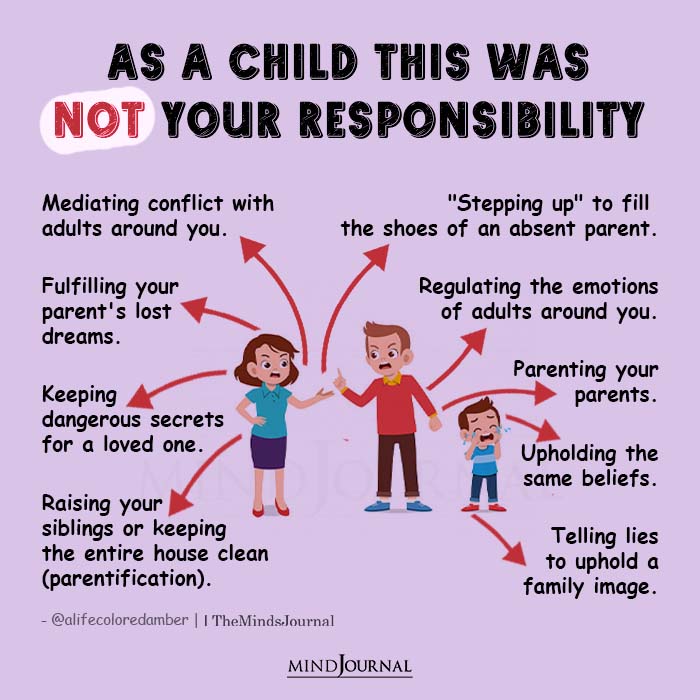
When this awareness dawns upon you, it becomes crucial to seek help and treatment, to embark on a journey of healing, and to break the cycle of toxicity. After understanding what is toxic parenting, here are some of the ways to clear your query regarding what to do when your parents are toxic
1. Establish Boundary
Empower yourself by establishing clear boundaries and deciding what behaviors you will and won’t tolerate from your parents. Take some time to reflect on the actions that deeply upset you, and then create a list of what you will no longer accept.
These boundaries will serve as a protective shield for your emotional well-being. Making your safety and well-being a top priority is crucial. It is the best to defend against what is toxic parenting.
Reach out to your school counselor, a relative, or a teacher who can provide support and guide you through the situation.
Remember, setting boundaries is an act of self-respect and self-preservation. It allows you to create a healthier and more positive environment for yourself and take control of your own emotional journey.
2. Refrain from taking your parents’ hurtful words personally
It’s natural to be affected by their comments, but it’s essential to recognize that their hurtful remarks are a reflection of their own issues, not a reflection of your true worth.
When they say something hurtful, remind yourself that it doesn’t define who you are. Counter those negative statements with positive affirmations about yourself.
For instance, if your parent says, “You’re so lazy,” take a moment to question the accuracy of that statement. Remind yourself of all the ways you work hard and contribute positively.
3. Plan your exit in advance
Create a well-thought-out exit strategy for situations when you experience mistreatment from your parents. Whether you live with them or spend time together during the holidays, it’s important to be prepared for challenging moments.
By having a plan in place, you can remove yourself from the situation and prioritize your emotional well-being.
For instance, if you find yourself in a difficult situation, politely excuse yourself to the bathroom, indicating that you’ll be back shortly.
Alternatively, you can pretend to receive an important call or text that requires your immediate attention. Another approach is to let them know that you have other commitments or plans that need your attention.
4. Give yourself time to heal
Grant yourself the space and permission to grieve the loss of the relationship you had hoped for with your parents.
It’s completely normal to experience feelings of sadness and disappointment and to acknowledge that you might have missed out on a more conventional parent-child dynamic.
Allow yourself to truly experience these emotions, whether it’s sadness, anger, or any other feelings that arise.
Release these emotions in a way that feels right for you, whether it’s through crying, journaling your thoughts and emotions, or confiding in a trusted friend or therapist.
5. Offer forgiveness when you are ready
When you feel ready, consider embracing forgiveness towards your parents. Remember that forgiveness is a gift you give to yourself, not necessarily to the person who hurt you.
Read More: What Is Family? Learn Types Of Family And What Is An Ideal Family?
Acknowledge that your parents’ actions were wrong, but also recognize their humanity and fallibility.
Understand that the past cannot be changed, and forgiveness allows you to release the emotional burden and find peace within yourself.
At your own pace, come to a place of acceptance and say, “I forgive you for the past. Moving forward, I hope our relationship can improve.” You have the choice to share this sentiment directly with them or choose a more private approach.
6. Seek help from a therapist
Engaging with a therapist can be an invaluable step in processing your emotions and developing effective coping strategies. A therapist will provide guidance in recognizing and understanding your feelings, as well as helping you navigate through them.
They will offer mental tools to enhance your life and improve your interactions with others, including ways to address toxic family dynamics constructively.
When seeking a therapist, prioritize finding one with experience in dealing with toxic family dynamics.
Their expertise will be particularly beneficial in addressing your unique situation and helping you foster emotional growth and healing.
Related: Mind Help Therapy Test
Identifying what is toxic parenting involves acknowledging the impact of hurtful behaviors, accepting that the parent’s actions can be wrong, and understanding that forgiveness is a gift.
The key is to stay committed to the journey of transformation and to acknowledge the necessity of change for the sake of your mental well-being and the well-being of those around you.
Remember, the journey may take time, but the important thing is now you know what is toxic parenting so you won’t do such activities that will make you a toxic parent. Your dedication to growth and the positive impact it can have on yourself and your relationships.
Frequently Asked Questions (FAQs)
1. How to deal with toxic parents?
Dealing with toxic parents can be challenging, but it’s essential to prioritize your well-being and establish healthy boundaries.
2. How toxic parenting affect children?
Toxic parenting can have profound and lasting effects on children’s emotional, psychological, and social well-being. The negative impact can manifest in various ways.
3. How does a toxic mother affect a child?
A toxic mother can have significant and lasting effects on a child’s emotional, psychological, and social well-being. The impact can vary depending on the severity and duration of the toxicity, as well as the child’s resilience and support systems.
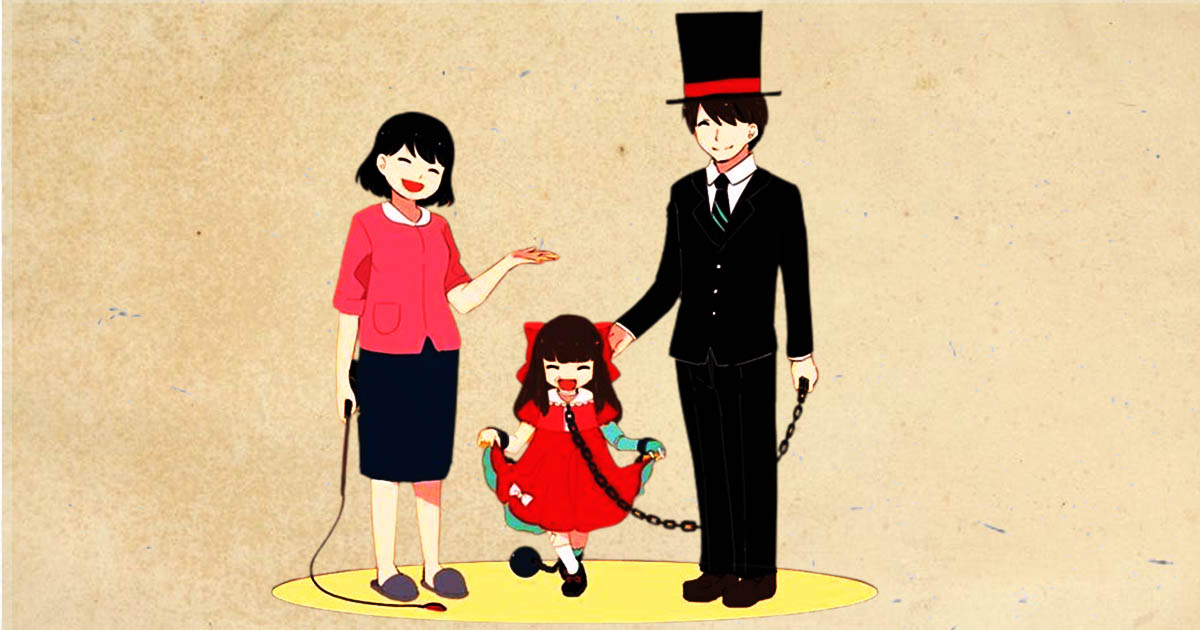










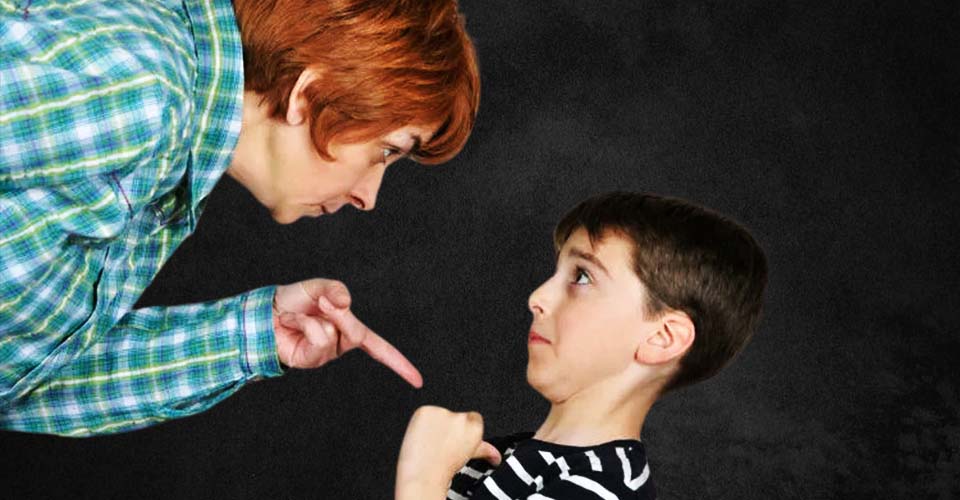



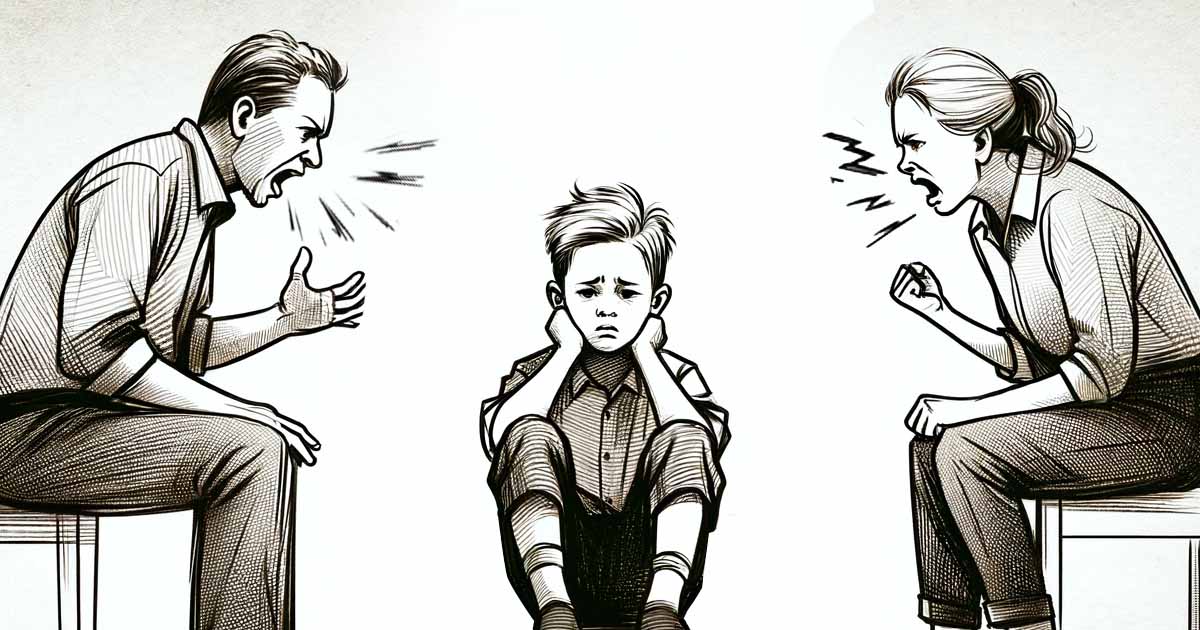
Leave a Reply